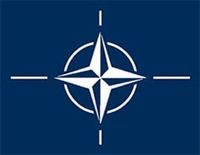In the latest "Die Hard" movie, "Live Free or Die Hard," Bruce Willis reprises his role as Detective John McClane. This time, he fights against a shadowy criminal group that's using Internet attacks to devastate America's infrastructure. McClane must stop the gang and rescue his kidnapped daughter in the process. That plot description got us wondering: Is it really possible for a group of hackers to cause economic or physical devastation in the United States?
Cyber security is becoming an important issue. Many media organizations and government officials rank it just as grave a threat as terrorist attacks, nuclear proliferation and global warming. With so many commercial, government and private systems connected to the Internet, the concern seems warranted.
Advertisement
To add to the concern, consider that today's hackers are more organized and powerful than ever. Many work in groups, and networks of black-market sites exist where hackers exchange stolen information and illicit programs. Credit-card data is sold in bulk by "carders" and phishing scams are a growing concern. Malware -- viruses, Trojan horse programs and worms -- generates more money than the entire computer security industry, according to some experts. Hackers are also distributed all over the world, many in countries like Romania that have lots of Internet connectivity and loose enforcement of laws.
Recently, the British government released evidence that foreign intelligence agencies, possibly in China, Korea and some former Soviet states, were hacking computers in the United Kingdom. "Economic espionage" was believed to be one reason behind the attacks [Source: Computer Weekly]. Economic espionage involves attempting to undermine the economic activity of other countries, sometimes by passing on stolen industry and trade secrets to friendly or state-owned companies. Key employees, those who have access to sensitive information or government secrets, can be targeted through virus-laden e-mails, infected CD-ROMS or memory sticks, or by hacking their computers.
To respond to these threats, the European Union, G8 and many other organizations have set up cybercrime task forces. In the United States, some local law enforcement organizations have electronic crime units and the FBI shares information with these units through its InfraGard program.
Great Britain thinks it's facing a threat, but should the United States be concerned? Recent events in Estonia may actually shed some light on the situation.
Advertisement





